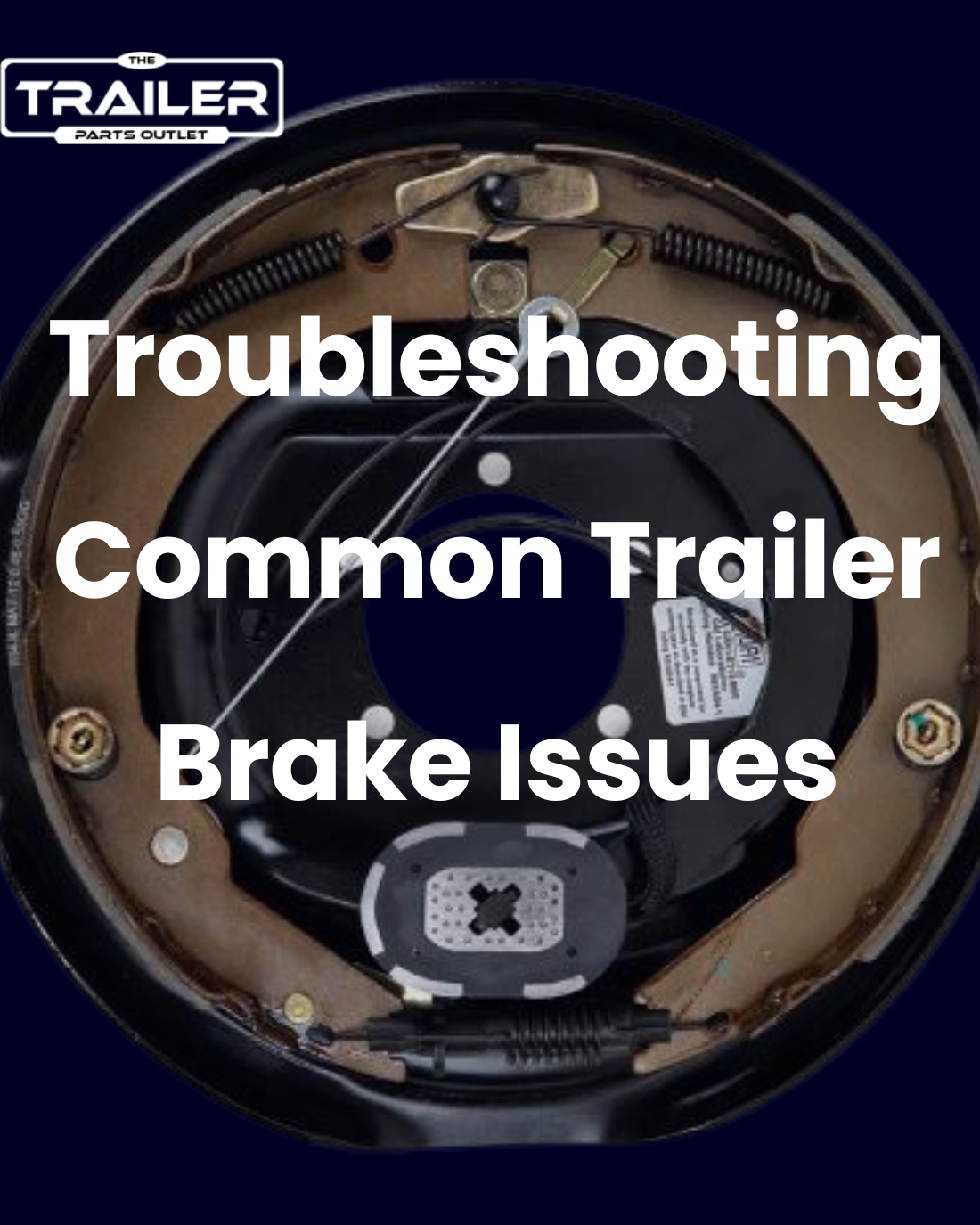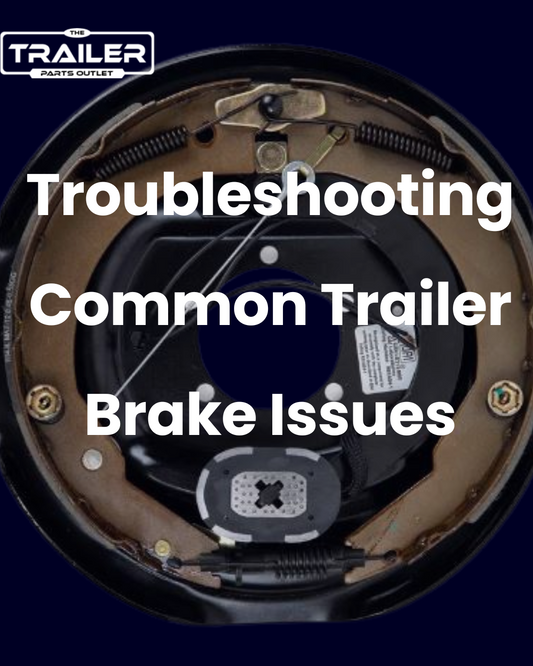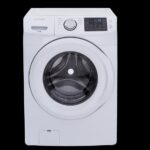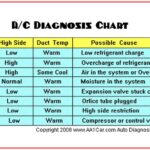Have you ever found yourself towing a trailer only to realize that your trailer brake controller isn’t working as it should? It can be frustrating and even nerve-wracking, especially when safety is a top priority.
Whether you’re a seasoned driver or new to towing, understanding how to troubleshoot your trailer brake controller can save you time, money, and stress. You’ll discover simple steps to identify and fix common issues, ensuring a smoother and safer ride.
Imagine the peace of mind you’ll feel knowing that your trailer brake system is working flawlessly. Let’s dive in and get you back on the road with confidence.

Credit: thetrailerpartsoutlet.com
Common Brake Controller Issues
Trailer brake controllers are crucial for safe towing. They ensure smooth braking and control. Yet, they can face several common issues. These issues can affect safety and performance. Understanding these problems helps in fixing them quickly.
Power Loss Problems
One frequent issue is power loss. This happens when the controller doesn’t receive power. Check the power connections. Loose or corroded wires can cause this problem. Also, inspect the battery voltage. Low voltage can disrupt the controller’s function. A multimeter can help verify the voltage.
Inconsistent Braking Response
Braking response should be smooth and predictable. If it isn’t, there might be a problem. Examine the trailer’s wiring. Damaged wires can lead to inconsistent braking. Also, review the settings on the controller. Incorrect settings can cause erratic braking.
Warning Lights Activation
Warning lights can indicate several issues. They might signal wiring problems or controller faults. Check the manual for specific light meanings. Inspect all connections and wiring. A thorough check can often reveal the underlying issue.

Credit: thetrailerpartsoutlet.com
Diagnosing Power Loss
Power loss in a trailer brake controller can be frustrating. It affects your vehicle’s safety and performance. Diagnosing power loss involves several steps. Each step ensures your brake controller functions properly. Let’s explore key aspects of the troubleshooting process. Focus on electrical connections, battery voltage, and fuse inspection.
Checking Electrical Connections
Start by inspecting all electrical connections. Loose or corroded connections cause power loss. Ensure wires are firmly connected. Examine the connectors for signs of damage. Replace any faulty or worn-out connectors immediately. Clean connections to remove corrosion. This ensures a stable power supply.
Battery Voltage Test
Next, test the battery voltage. A weak battery affects the brake controller’s efficiency. Use a multimeter to measure voltage. A fully charged battery should read around 12.6 volts. If the voltage is low, recharge or replace the battery. A strong battery supports consistent brake operation.
Fuse Inspection
Check the fuses related to the brake controller. A blown fuse interrupts power flow. Inspect the fuse box for any damaged fuses. Replace any blown fuses with the correct type and rating. Ensure the fuse fits snugly in its slot. This step restores the electrical circuit’s integrity.
Resolving Inconsistent Braking
Resolving inconsistent braking in your trailer can be a puzzling ordeal, but it’s crucial for safety. Have you ever felt that nerve-wracking moment when your trailer doesn’t slow down evenly, causing a jerky ride? Addressing this issue is not only about enhancing your driving comfort but also ensuring that your trailer’s braking system functions reliably. Let’s dive into the essential steps you can take to achieve consistent braking and a smoother towing experience.
Adjusting Gain Settings
The gain setting on your trailer brake controller is like the volume control for your trailer’s brakes. Too high, and you might feel a sudden jolt when braking; too low, and your trailer won’t slow down enough. Start by setting your gain to a moderate level. Then, do a few test stops on a clear road. Adjust the gain based on the feedback you receive. Does the trailer stop smoothly with the vehicle? If not, tweak the settings until you find the sweet spot. Remember, the right gain setting can differ based on the load you’re towing.
Sensor Calibration
Proper sensor calibration is vital for accurate braking. If your trailer brake controller uses sensors, they need to be correctly calibrated to match your vehicle’s braking profile. Check the controller’s manual for calibration instructions. Incorrect calibration can cause erratic braking responses. As you calibrate, consider the terrain and weight of your trailer. Is the controller sensing your vehicle’s deceleration accurately? If the trailer brakes feel off, recalibrate and test again.
Brake Pad Examination
Worn-out brake pads can lead to inconsistent braking, as they struggle to grip effectively. Regularly check the condition of your trailer’s brake pads. Are they thin or unevenly worn? Replacing them can drastically improve braking performance. Also, inspect for any debris or dirt that might interfere with the pads’ operation. Keeping brake pads in top shape is as essential as ensuring your vehicle’s brakes are responsive. Consider this: when was the last time you examined your trailer’s brake pads closely?
By methodically adjusting gain settings, ensuring sensor calibration, and examining brake pads, you can tackle inconsistent braking effectively. Each step enhances your control and peace of mind while towing. Prioritize these checks periodically, and your trailer rides will be smoother and safer than ever.
Addressing Warning Lights
Trailer brake controllers are crucial for safe towing. Warning lights often signal potential issues. Addressing these lights can prevent serious problems. Understanding and fixing these issues keeps you safe on the road. Let’s explore how to address warning lights effectively.
Reading Error Codes
Error codes provide valuable information about the brake controller’s status. Use the vehicle’s manual to identify these codes. Each code corresponds to a specific issue. Once identified, follow the recommended steps to fix the problem. This ensures your trailer’s brakes function correctly.
Sensor Malfunction Analysis
Sensors play a key role in trailer brake systems. They detect changes and send signals to the controller. A malfunctioning sensor can trigger warning lights. Inspect sensors for dirt or damage. Clean or replace them if needed. Proper sensor function is vital for your safety.
Resetting The Controller
Sometimes, a simple reset fixes the problem. Turn off the vehicle and disconnect the controller. Wait a few minutes before reconnecting it. This can clear minor glitches causing warning lights. Regular resets help maintain the system’s efficiency.
Preventive Maintenance Tips
Keeping your trailer brake controller in top shape avoids future issues. Regular maintenance ensures a smooth and safe towing experience. Here are some simple steps to maintain your brake controller efficiently.
Regular System Checks
Inspect your brake system often. Look for signs of wear or damage. Check connections and wiring for any loose ends. Tighten or replace parts if needed. This routine prevents unexpected failures on the road.
Cleaning Connectors
Clean your connectors regularly. Dirt and corrosion affect connections. Use a soft brush to remove dust. Apply a contact cleaner for stubborn grime. Clean connectors ensure proper electrical flow.
Updating Software
Keep your brake controller software updated. Manufacturers release updates to fix bugs. Updates improve system performance. Check the manufacturer’s website for any new releases. Install updates promptly for optimal functionality.
Expert Advice And Recommendations
Trailer brake controllers are essential for safe towing. Troubleshooting them requires expert advice. This section offers guidance to ensure reliability and safety. Understanding expert tips can help you maintain your trailer brake controller effectively. It also provides insights into choosing the right parts and following safety practices. Learn from seasoned mechanics and make informed decisions.
Consulting Professional Mechanics
Professional mechanics have vast experience with brake controllers. They identify issues quickly. Their expertise saves time and ensures accurate repairs. Consulting them provides peace of mind. They often have specialized tools for precise diagnostics. Mechanics can also offer maintenance tips. This prolongs the life of your brake controller.
Choosing Quality Replacement Parts
Quality parts ensure smooth operation. They reduce risk and improve performance. Poor-quality parts may lead to frequent failures. Investing in reliable parts saves money in the long run. Look for trusted brands with good reviews. They often come with warranties. This provides extra assurance for buyers.
Safety Best Practices
Following safety practices is crucial. Regular checks prevent unexpected issues. Inspect connections and wiring frequently. Proper maintenance enhances reliability. Keep the controller clean and free from dust. Ensure settings are adjusted correctly. Always test brakes before trips. This helps prevent accidents and ensures safety.

Credit: trailparts.co.nz
Conclusion
Troubleshooting a trailer brake controller can seem daunting at first. But, with patience, you can solve common issues. Remember to check connections and settings regularly. Keep an eye on warning signs like unusual noises or smells. These could indicate problems.
Consult your manual for specific instructions. If unsure, seek professional help to prevent further damage. Regular maintenance ensures your trailer brake system works efficiently. Safe travels depend on well-functioning brakes. Stay attentive, and you’ll enjoy smooth and secure journeys.






